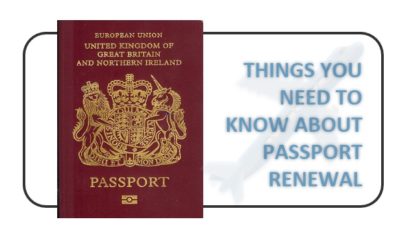9 Ways Brexit will affect Traveling to Europe

Ever since Britishers voted on June 23, 2016, to leave the European Union, a new word was added to the dictionary called Brexit. Since then, the world began talking about nothing but Brexit and the far-reaching effects of this decision.
People all over the world were more than curious to know what Brexit was and if the decision to withdraw from the EU was going to affect the lives of common citizens.
With the way, things have been shaping up since the referendum it is quite evident that Brexit has caused some hard times for the United Kingdom.
So what is Brexit?
Brexit is a combination of the words ‘Britain and Exit’ used to describe Britain’s decision to leave the European Union. When the previous Prime Minister, David Cameron sought a referendum from the people back in 2016, he was hoping to silence pro-Brexit opponents within his own Conservative Party.
He was under the impression that the country would choose to remain with the European Union. However, things didn’t go as he had envisioned.
A majority of the people voted to leave, probably because at that point the implications of Brexit had not been clearly defined. They were only offered two choices Either remain with the EU or to leave.
The findings revealed that a large population of the youth was keen to remain with the EU, but the older generation wanted out. This was probably due to the xenophobia that had gripped Europe at the time with the refugee crisis. However, when the implications of Brexit became clearer, many did regret their decision, but the wheels had already been set in motion.
What happens to EU citizens in UK after Brexit?
There has been much criticism of Theresa May bringing the status of EU citizens in the UK after Brexit to the negotiating table. As part of May’s deal, the 3 million EU citizens that currently reside in the UK can still stay in the UK and work in the country without work visas. The same would apply to 1.3 million British citizens in the EU.
Prior to May’s plans, the status of EU citizens living in the UK after Brexit had already been addressed. The Home Office’s ‘settled status’ scheme will ensure that EU citizens will not have to exit the country once Brexit becomes a reality.
EU citizens that have been living in the UK for five years or more by 31 December 2020 will qualify for this status, which will allow them to continue living and working in the UK indefinitely. Those who have been in the UK for less than five years will have to wait until they qualify for the settled status and then apply.
EU nationals will also have permission to bring close family members and spouses to live with them.
Will there be a change in the immigration rules after Brexit?
After Brexit, one of the major changes to immigration will be the end of Free movement into Britain from EU countries. The free movement of EU nationals into Britain was what prompted many to vote for Brexit in the first place because of the fear of losing out to migrants.
If the initial plans for Brexit are to remain there will be a few changes to the system, which will focus on a skill-based migration policy for those wanting to reside in the UK for a longer time. Irish nationals, British citizens and the Crown Dependencies will, however, be unaffected by the UK’s exit.
How will Brexit affect British citizens traveling to Europe?
As of now, traveling to Europe has been pretty simple for British citizens because the UK is still a part of the European Union.
However, traveling to Europe after Brexit will not be as easy as it is now. It will affect the future relationship with Europe. One of the major changes that could happen if there is a no-deal will be queuing up with people from ‘other countries’ at airports during immigration.
British citizens will no longer be able to enter the country smoothly as members of the EU but will have to go through the same procedures as citizens from other countries.
What are some of the changes to travel that you can expect?
1. A new travel document
From 30 June 2021 when Brexit, is supposed to become a reality, travelers from Britain will probably need a new document to travel to Europe at a nominal cost. The current status of not having to apply for a visa or travel document will be in effect only for this year and the next.
If Britain leaves the EU with a no-deal then British travelers will also require to queue up to get their passports stamped when they arrive in Europe. This means longer waiting times at the airport.
The government also advises checking the validity of your passport. If there is a no-deal, then like the other third-country nationals, British passports will need to be valid for at least another three months from the date you plan to leave the Schengen area. The passport should also have been issued within the previous 10 years.
2. Rising costs
The pound continues to weaken, holidays will definitely become more expensive. The pound fell sharply when the referendum to leave was declared in 2016. Since then it has steadied a bit but it hasn’t been able to regain the lost ground.
The good news is that there hasn’t been much inflation in the major holiday destinations of Europe and prices at some of the destinations have even fallen.
A good idea if you still want that European holiday is to consider traveling to places like Poland, that don’t use the Euro.
3. Cost of Flying
When Brexit occurs, new service agreements will have to be made to ensure airlines can still operate freely in and out of the UK. If the negotiations are unfavorable, the cost of flying could definitely go up.
4. Compensation for airline delays
This probably won’t undergo any major changes as passengers will still be entitled to compensation and assistance. Passenger rights will be the same as today. For airlines registered with the EU, the EU law will still be in effect for flights to and from the EU.
5. Insurance
The EHIC(European health insurance card), which Britons currently use when traveling to the EU, has made medical treatment when traveling much easier.
However, the EHIC will probably be discontinued after Brexit, which means that travelers to Europe will have to get their own medical insurance.
ABTA (Association of British Travel Agents) advises checking the terms and conditions of any travel insurance. It’s advisable to find out from your insurer how Brexit could affect your travel insurance if the UK leaves the EU while you’re traveling.
6. Making Calls
Due to the present European law, British citizens can use mobile phones in the EU at the same price that they pay at home with no roaming charges.
If Brexit happens with a no-deal, mobile providers may just have a field day with prices and reintroduce roaming charges.
Major mobile providers have, however, promised to keep their prices fair. This will only be known for sure when Brexit becomes a reality.
7. Driving In Europe
These cards take at least a month to process so one needs to be well prepared. You may also need this special permit if you plan to hire a car in Europe.
British citizens living in the EU have been advised to get a local license. In case of a no-deal, their licenses would be invalid and they might even have to take a test.
8. Traveling with Pets
Pet passports issued in the UK will not be valid if there is a no-deal. If you want to take your pet along with you during your travels you’ll still need to consult your vet at least four months in advance.
Pets will need to be vaccinated and micro-chipped before travel. A month after vaccination a blood sample of your pet will be taken to be certain of the vaccination effectiveness. There will then be a waiting period of three months before your pet can be deemed fit for travel.
9. Duty-Free
Duty-free shopping was discontinued within the EU in 1999. There are hopes that Duty-Free shopping may return if there is a no-deal.
However, whatever the outcome of Brexit, duty-free shopping will not return immediately.
This is because the current trade and customs rules will continue to be in force until the 21-month transition period lapses.
Although there are many scenarios in place for Brexit, it looks like it will still be a while before Brexit becomes a reality. The British Prime Minister has been trying to strike a deal with the EU for a transition plan, but her plans have been struck down by her own Parliament for the third time. Her Brexit deal with the EU has been voted against yet again, resulting in her resignation.
Time will tell how Brexit will play out and whether the UK leaves with a ‘hard Brexit’ or decides to go for another referendum.
Sachin Suryawanshi
Digital Marketing Consultant
If your flight delays for more than 3 hours, or was cancelled, you may be eligible for compensation up to €600 based on EU 261 rule.
Check For FreeWe offer "No Win - No Fee" Services, so claiming is Risk-Free!
How to Renew your Passport? Adult & Child Passport Renewal UK
Passport Renewal When you have plans to travel abroad, you will need your passport. But what if your passport has expired? You will need to apply for your UK passport renewal. Moreover, it would be best if you had a brief idea of “How to...
Coronavirus Flight Cancellations
Updated on March 25, 2020 at 11:03 amCOVID-19: European Commission Guidelines on EU passenger rights In efforts to mitigate the economic impacts of the COVID-19 pandemic, the European Commission has published guidelines to ensure EU...
8 Important Facts You Should Know About Airline Food
Usually, travellers don’t keep a much favourable relationship with plane food. While airline meals frequently get negative criticism, numerous aircraft still separate themselves through their locally available contributions. Some carrier...



